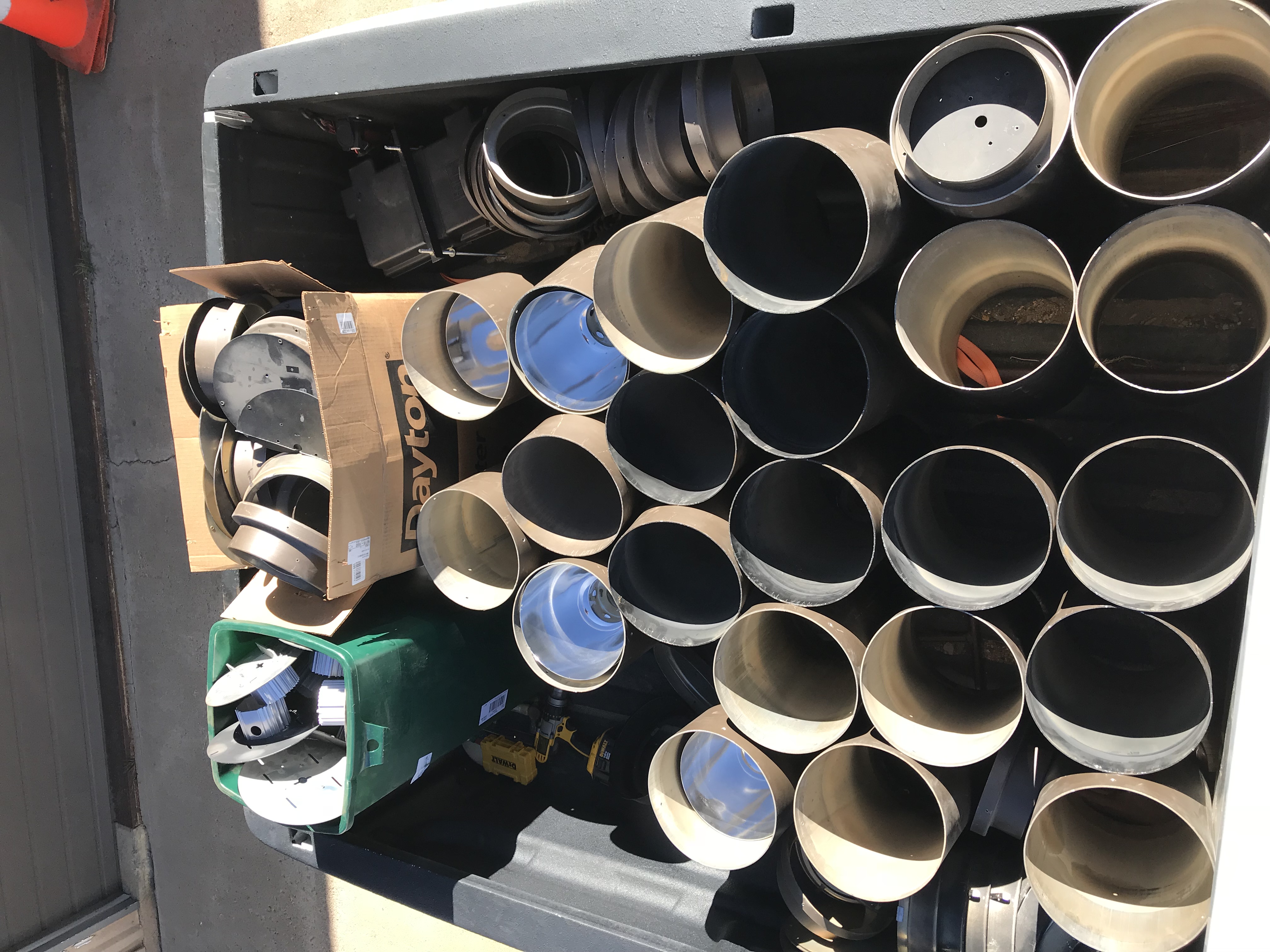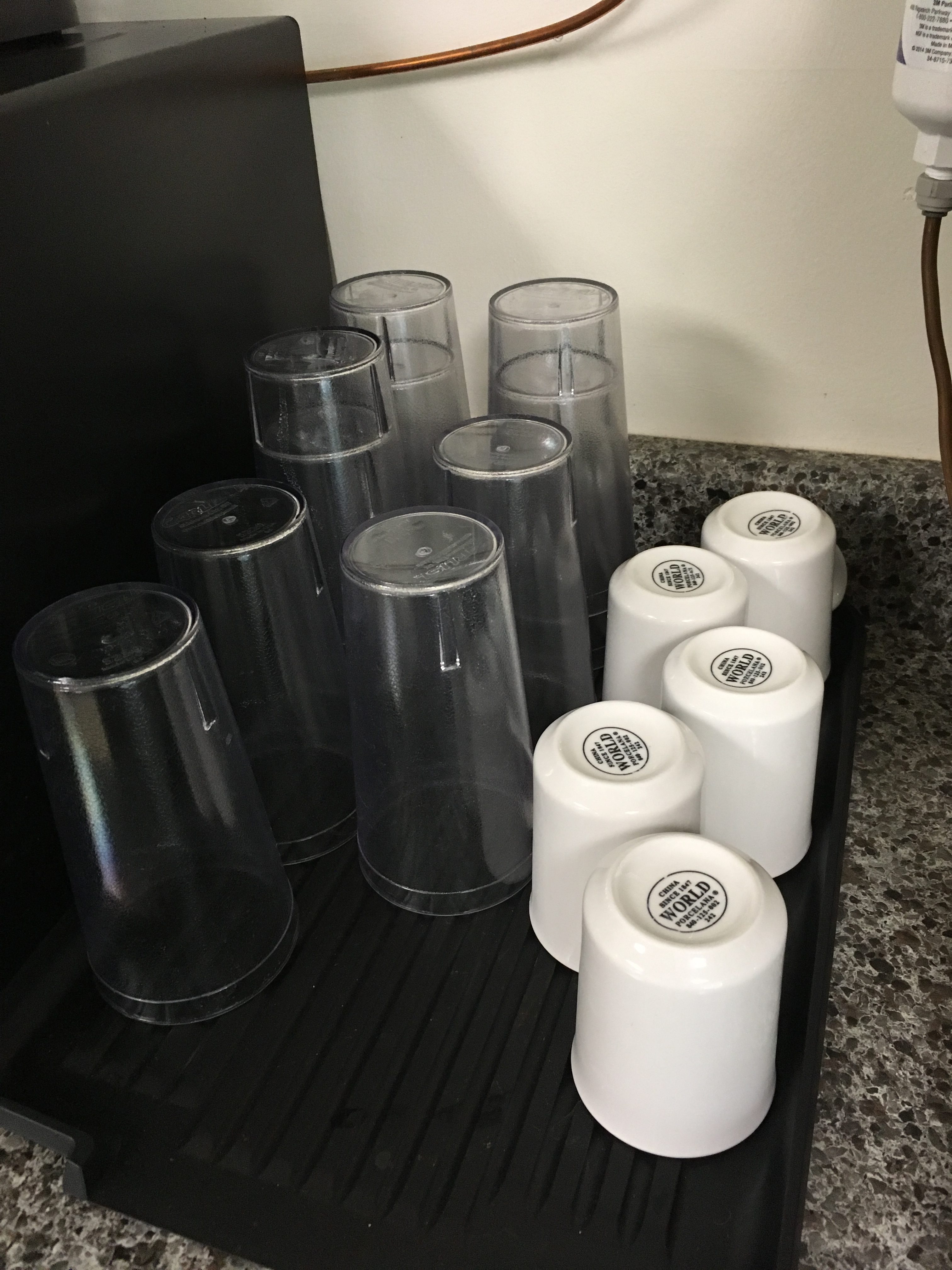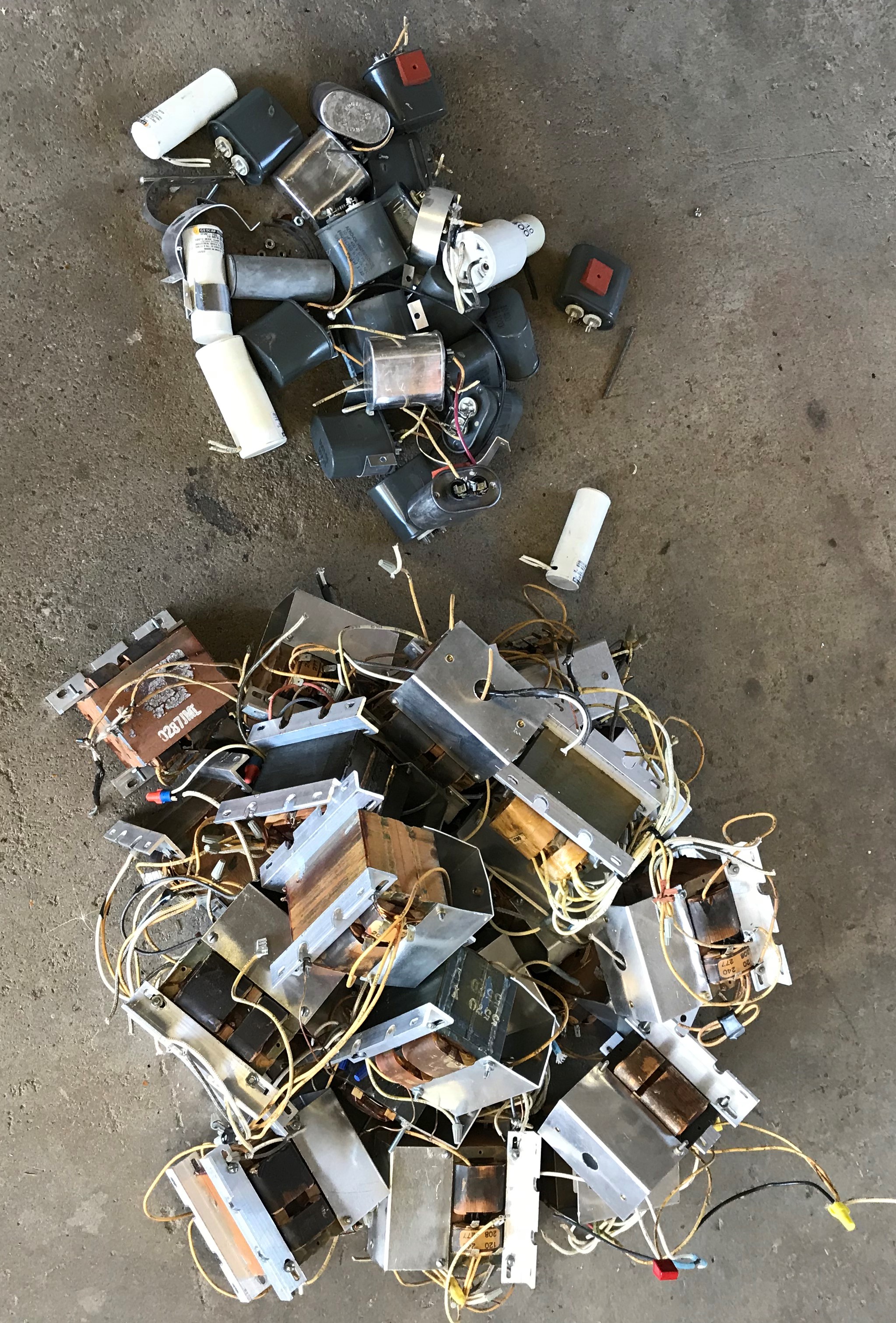
Sustainability beyond water
In 2018, Denver Water’s employees diverted 60 tons of waste from Colorado’s landfills.
Throughout the year, employees separated their waste into bins dedicated for recycling, composting and trash. All told, some 41,163 pounds of waste were sent for composting. An additional 79,152 pounds of material was sent for recycling.
The effort kept the equivalent of 134 truckloads of material out the state’s landfills last year, according to calculations by Denver Water’s waste hauler, Alpine Waste & Recycling.
That day-to-day effort by the more than 1,000 people who work at Denver Water is part of the organization’s larger dedication to the environment.
“While we specialize in water, we understand our water supply is tied inextricably to the condition of our environment, our climate and our landscapes,” said Brian Good, Denver Water’s chief administrative officer. “Stewardship for water means stewardship for all or our natural resources.”
Denver Water has a special responsibility to the environment, and a proud history of championing water conservation and efficiency.
And our work on sustainable practices is expanding. We’re reaching beyond water to cut waste, save energy and reduce emissions.
Here at TAP we will be telling you about these efforts in the months ahead, sharing what we’re doing and why. We hope these stories will inspire other individuals and organizations to do the same.
To kick things off, let’s talk some trash.
Denver Water’s Sustainability Guide calls for cutting our solid waste stream that goes into the landfill by 25 percent by 2020 compared to 2016 levels.
How are we doing that? Through steps large and small across our operations.
This year, employees at Denver Water’s Recycling Plant in northeast Denver agreed to “Commit to Quit” using disposable kitchenware such as plates, cups, bowls and silverware.
The breakroom now has reusable tableware for employees to use, and the recycling plant has stopped ordering these disposable supplies. They’ve even eliminated compostable plates, cups and silverware from the breakroom — going a step further in a commitment to sustainability.
“At the water recycling plant, we believe that reducing and reuse should come before recycling and composting, so making the switch to reusable kitchenware was a piece of cake,” said Tyler Johnson, the treatment lead for the facility who played a big role in getting the program started at the plant.
The move led to a significant reduction in solid waste coming from this facility and helped the plant save money in its operating budget.
Johnson said the plant’s staff has embraced the shift: “We’ve been without recyclable or compostable kitchenware for almost a year and the transition was painless.”
Two other Denver Water treatment plants, Foothills and Moffat, are jumping on the “Commit to Quit” program to further the organization’s waste reduction efforts.
At Dillon Reservoir, Denver Water’s largest water storage site, the hydroelectric team that works at the facility went above and beyond in the name of sustainability.
The team was determined to make sure a lighting retrofit project not only saved energy (more on those savings in an upcoming story), but also didn’t lead to piles of scrap destined for the trash heap.
John Blackwell, Rick Geise and Donald McCreer disassembled the old light fixtures and separated them into recyclable parts. The resulting pile of scrap metal and aluminum included 24 transformers, 24 capacitors, and 24 175-watt halide bulbs. All of it was diverted from Summit County’s landfill.
Efforts like the ones at the recycling plant and Dillon Reservoir add up.
“Within the first year of publishing our sustainability commitments, Denver Water employees have responded; we are making progress toward our goals,” said Kate Taft, Denver Water’s sustainability manager. “With the enthusiastic and creative support of our workforce we are building these actions into our institutional culture and daily operations.
“Not only do we want to find more ways to reuse, repurpose, recycle and close loops with resources we need, we want to continue to drive down resource use and reduce our consumption to begin with.”
TAP will continue to report on our sustainability progress. Watch this space for upcoming stories on energy savings, emissions reductions, electronic waste recycling and — yes — even water savings.



